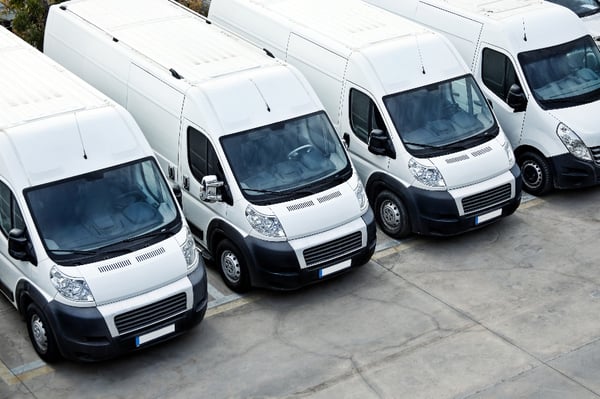
When you run a business, having a company truck can be a significant asset as it can be used for hauling equipment and other tasks. Are you contemplating buying a truck for your business but are hesitant to make the investment? Rather than buy a commercial truck, you could lease one just as many business owners are doing today. Here are six of the top benefits of leasing a company truck instead of buying a new one, along with some other helpful information.
1. More Affordable and Better Profits for Your Business
One of the main reasons for leasing a commercial truck is that it doesn't require a huge capital expenditure. Unlike buying a vehicle, leasing doesn't involve hidden costs, such as taxes, towing, overhead and other expenses. Besides having to make large up-front costs, truck owners are also required to cover finance charges and pay a sales tax.
By leasing a commercial truck, you can obtain better profits for your business since your monthly payments are lower. As a result, you get to keep more money in your company's bank account. Furthermore, when there's less paperwork to do, you can have more time to devote to your business.
2. No Depreciation Costs
When your leased truck decreases in value because of depreciation, it won't affect you. In other words, you don't have to worry about depreciation costs, which is a problem when buying a new truck. Leasing doesn't reduce the net worth of your company, and it doesn't appear on the balance sheet of your CFO (chief financial officer).
3. Less Maintenance and Repair Costs
Another benefit of leasing is a reduction in repair and maintenance costs. With a full-service lease, repairs and maintenance expenses are covered, such as oil changes, tires and routine inspections. But when you own a truck, you're responsible for repairs and maintenance.
4. Relieves You of Issues Linked with Vehicle Ownership
When you lease a truck for your business, you're relieved of the common hassles you would typically experience with vehicle ownership. For example, you don't have to deal with possible compliance problems or fees linked with replacing drivers or costs for training drivers.
Another problem with owning your own company truck is having drivers leave your company to work for businesses that have more advanced equipment.
5. More Flexibility
Many leasing companies don't require a down payment, which also makes leasing more flexible than buying a truck. Once your lease period has ended, you return your leased vehicle. This also gives you more flexibility.
What's more, the terms of a lease involve a fixed, consistent payment, which can make your finances more flexible as it frees up capital. This is especially helpful when you have to make business investments or pay for emergency repairs for your business.
6. 24/7 Emergency Roadside Breakdown Assistance
Peace of mind in knowing you'll be rescued when your truck breaks down is a huge advantage of leasing. Unlike truck ownership, you can let your leasing company take care of vehicle breakdowns when you buy a full-service lease.
When your truck breaks down, you can contact an experienced mechanic who's on standby to handle whatever you need done. These specialists have everything needed for handling flat tires, towing and other types of problems.
Common Leasing Terms
It's important to understand the basic leasing terms or jargon involved in a lease, such as:
- Depreciation—This is the amount that a vehicle has lost in its value while being leased.
- Residual, which goes together with depreciation, is how much a vehicle is worth when the lease ends.
- Capitalized cost—Also known as "cap cost", this term pertains to the negotiated selling price of a vehicle, besides any extra fees, such as an acquisition fee, that you may want to include in your lease payments.
- Money factor—This is the finance charge and is generally stated as a fraction.
Leasing vs. Renting
A common misconception is that leasing a truck is the same as renting one. Although leasing and renting do share a few common traits, they're not the same.
- One of the main differences is time frame. Truck rentals involve a considerably narrower commitment, such as only a few days or up to a week or two, while leasing entails more time.
- The type of provider is another difference. While most rented vehicles come from rental agencies at airports or stores, leased vehicles come from auto dealerships or fleet leasing companies.
- Another way they differ is that there's no potential for obtaining ownership for a rental vehicle, but this is not the case for a leased truck. Leasing a truck is much like buying one and obtaining a loan. This is because you pay the lease until you wish to lease another truck or buy it.
Considerations and Warnings
- Consider the number of miles you'll be putting on your truck each year. Often, leased vehicles charge additional fees for miles over 10,000 or 12,000/year.
- Determine the length of time you expect to keep your truck, along with how much you can spend on monthly payments. Generally, lease payments are less than what you would pay for monthly payments on a vehicle loan.
- Consider your financing options for buying vs. leasing.
- If you do a lot of time-restricted projects, or if your business is seasonal, it makes sense to lease a truck instead of having to buy a vehicle that can mean making expensive maintenance costs.
- Leasing is usually the best choice if you're not sure you'll be driving your commercial truck for at least three years.
- Virtually every part of a lease is negotiable.
The Bottom Line
- As prices on new vehicles continue to increase, leasing becomes a more preferred option.
- When you lease a truck, you have more flexibility, less commitment and no worries over depreciation, maintenance and repairs.
- By spending less money on leasing, your business can be more profitable and you'll have more time to focus on it.
- Consider how when you lease a commercial truck, you can exchange it for a newer model that has the latest technology.
- Just as vehicle owners, you can deduct business expenses incurred when using your leased truck, using the standard mileage rate, which is 58 cents per mile for 2019.
These are only a few reasons for leasing a truck for your business rather than buying one. If you're considering leasing a company truck, contact the fleet leasing pros at Wilmar. Our Charlotte, North Carolina company is the largest independent fleet leasing and management company in the Southeast and has earned the reputation for delivering high-quality service.







